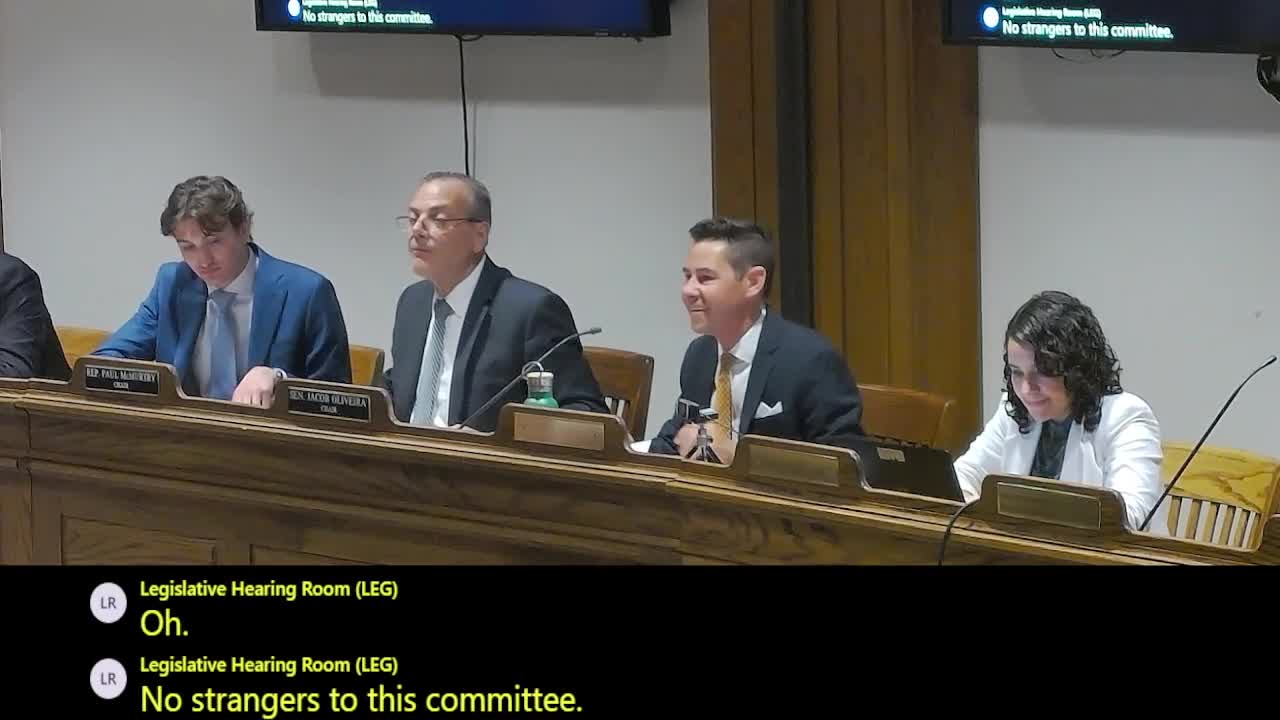Advocates push legislature to ease UI overpayment rules, update eligibility for fluctuating schedules
Get AI-powered insights, summaries, and transcripts
Subscribe
Summary
Legal services groups, advocates and lawmakers urged the Joint Committee on Labor and Workforce Development to pass bills that change unemployment insurance eligibility for workers with variable schedules and to ease collection of non‑fault overpayments.
BOSTON — Advocates for low‑wage and irregular‑hour workers told the Joint Committee on Labor and Workforce Development on Oct. 14 that Massachusetts should change how the Department of Unemployment Assistance (DUA) calculates eligibility and how it recovers non‑fault overpayments.
Supporters said the current eligibility formula penalizes workers with fluctuating schedules and earnings and that many outstanding overpayments stem from federal pandemic programs or administrative errors rather than claimant misconduct.
Hannah Tanabe, a senior attorney in the workers' rights unit at Greater Boston Legal Services, testified in support of Senate Bill 1334 and House Bill 2111. “This bill provides a small modification to our UI law to cure an inequity that's baked into our current eligibility formula,” Tanabe said, adding it would let weekly benefit calculations rely on hours worked and total earnings rather than the timing of work across quarters. She urged a “speedy and favorable report.”
Jason Salgado, a staff attorney at Greater Boston Legal Services, and Rep. Joan Meschino (Plymouth) described bills (including S1302/H2149 and related measures) that would let DUA waive or write off non‑fault overpayments and simplify the claimant waiver process. “These bills would only affect claimants who were not at fault when they were overpaid benefits,” Salgado said, noting that many of the largest outstanding overpayments are federally funded pandemic benefits and would not flow back into the state UI trust fund.
Committee members pressed for numbers. Tanabe and other advocates said recent federal and state data are difficult to parse quickly but estimated tens of thousands — possibly hundreds of thousands — of potentially affected claimants and emphasized that “the vast majority” of pandemic‑era overpayments were federally funded. Tanabe said a 2021 state report estimated about 5% of state‑level benefits would be recovered, meaning limited direct impact on the state trust fund.
Business groups urged caution. Chris Carlozzi, state director for the National Federation of Independent Business, opposed the bills changing eligibility and waiver standards, arguing the UI trust fund is on a path to insolvency and that Massachusetts already pays among the highest weekly benefits in the nation. He told the committee the state should instead consider benefit freezes, shorter durations, and anti‑fraud measures.
Lawmakers and advocates said they were trying to balance stabilizing the trust fund with preventing undue hardship for workers who applied in good faith. Rep. Meschino said the bill “limits the offsets of future benefits” only when claimants are not at fault and would protect families who accepted benefits in good faith during a chaotic pandemic period.
The committee took testimony from legal services, labor and advocacy groups and said written submissions and follow‑up data would be accepted through Oct. 17. No formal votes on the measures were recorded during the hearing.
